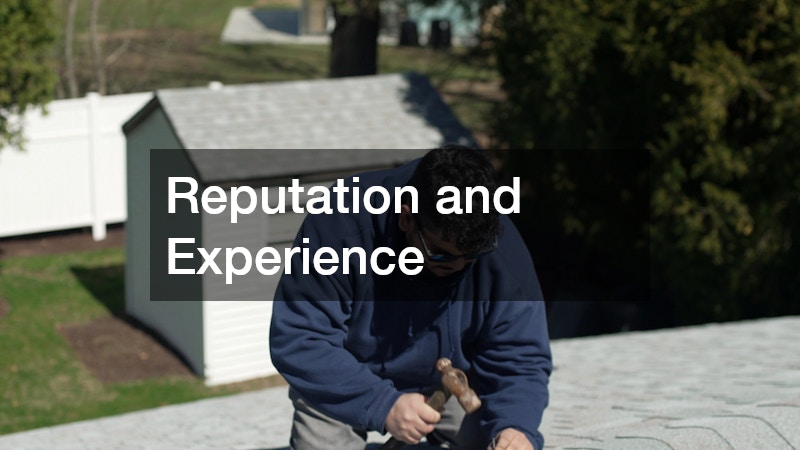Regular roof inspections are essential for homeowners who wish to ensure the durability and safety of their homes. By scheduling a roof inspection from local roofing services, homeowners can anticipate a thorough assessment of potential issues and mitigation of future costs. This article will explore the importance of these inspections and what to expect during the process.
The Importance of Local Roof Inspection
Ensuring Long-term Roof Health
Regular roof inspections are crucial for maintaining the long-term health of your roof. They work as a preventative measure, identifying minor issues before they evolve into costly repairs. By addressing these issues early, you extend the lifespan of your roof and protect your investment.
Professional roof inspectors look for wear and tear, examining areas that may be exposed to weather damage. They assess the condition of shingles, flashing, and other critical elements that contribute to roof stability. Regular checks ensure that your roof remains in optimal condition, thus postponing the need for a full replacement.
Homeowners often overlook roof maintenance, leading to neglected minor issues that worsen over time. Scheduled inspections prevent this oversight, highlighting repairs that might otherwise remain unnoticed. Ultimately, regularly scheduled inspections contribute to the structural integrity of your entire home.
Identifying Potential Issues Early
A significant advantage of a local roof inspection is the early identification of potential issues. Inspectors spot problems such as loose shingles, clogged gutters, or damaged flashing that could lead to more severe complications. Addressing these concerns promptly saves homeowners from future complexities and unplanned expenses.
Many roofing issues initially manifest as small problems that go unnoticed until they escalate. For instance, a minor leak can develop into extensive water damage affecting ceilings and interior walls. A timely inspection helps catch these issues before they progress, enabling simple repairs rather than extensive renovations.
Furthermore, early detection of roof issues can improve energy efficiency by identifying areas of poor insulation or ventilation. These adjustments contribute to reduced energy costs as your home maintains consistent temperatures more efficiently. Early detection thus not only safeguards the structure of the house but also enhances its environmental performance.
What Does a Roof Inspection Entail?
Exterior Inspection Procedures
An exterior roof inspection involves a comprehensive assessment of the roof’s outer structure. Inspectors evaluate the condition of shingles, looking out for curling, buckling, or missing pieces. They also examine the flashing around chimneys, vents, and skylights to ensure it remains watertight and intact.
During the exterior inspection, the roof’s structural integrity is put to the test. Inspectors check for sagging areas, which could indicate underlying damage in the roofing deck. Additionally, they inspect gutters and downspouts for blockages that could cause water pooling and subsequent roof damage.
The inspector’s trained eye not only identifies visible damage but also anticipates potential problem areas. For instance, they evaluate the wear around roof penetrations and other roof-to-wall connections. By understanding how these elements interconnect, the inspector can predict future issues and recommend preventive measures.
Interior Inspection Practices
The interior inspection is as crucial as examining the exterior, focusing on potential signs of structural damage within the home. Inspectors enter attics to check for proper ventilation and insulation. Poor ventilation can lead to excessive moisture, which promotes mold growth and undermines the roof’s integrity.
Mold is a common issue discovered during interior inspections, often located in poorly ventilated spots. By identifying mold early, remediation can occur before it spreads and causes significant health issues for the home’s occupants. Inspectors also look for signs of water damage, such as stains on ceilings or rafters, which may result from under-the-surface leaks.
Inside inspections provide insight into the durability of a roof’s structure. Sagging, rotting wood, or pest infestations can undermine roof support and must be addressed swiftly. These interior assessments are fundamental for ensuring that the structural components of the roof remain robust and trustworthy.
Choosing the Right Roof Inspector
Certifications and Qualifications
Certifications and qualifications are critical when selecting a roof inspector. A reliable inspector should be certified by reputable industry bodies, ensuring they adhere to high standards of professionalism. Such certifications demonstrate their competence in conducting thorough and accurate inspections.
Investigating a roof inspector’s qualifications provides assurance of their ability to perform comprehensive evaluations. Many professional inspectors offer a portfolio of their certifications and completed training programs for potential clients. These credentials indicate that the inspector has received formal education in safety procedures and the latest inspection technologies.
Besides certifications, checking an inspector’s bond and insurance status is vital. This ensures that homeowners are protected against unforeseen incidents during the inspection process. A well-qualified inspector operates with a commitment to safety and professionalism, offering peace of mind to their clients.
Reputation and Experience
Understanding an inspector’s reputation and experience can guide homeowners in making informed decisions. Testimonials from previous clients often provide authentic insights into the inspector’s work ethic and reliability. In addition, looking into the inspector’s experience can offer confidence in their ability to deal with various roofing issues.
Experienced inspectors bring a wealth of knowledge, allowing them to recognize unconventional problems that might be overlooked by less seasoned professionals. Their expertise helps anticipate potential issues beyond standard checks of shingles and gutters. Moreover, a proven track record often signals an inspector’s dedication to quality service and customer satisfaction.
A quality roof inspection provides understanding and insight into the overall health of your home’s roof. Regular inspections help identify and mitigate potential issues before they escalate into severe problems, offering peace of mind and safeguarding against future expenses. Homeowners are encouraged to prioritize these inspections, ensuring that their roofs and homes remain long-lasting and secure.


